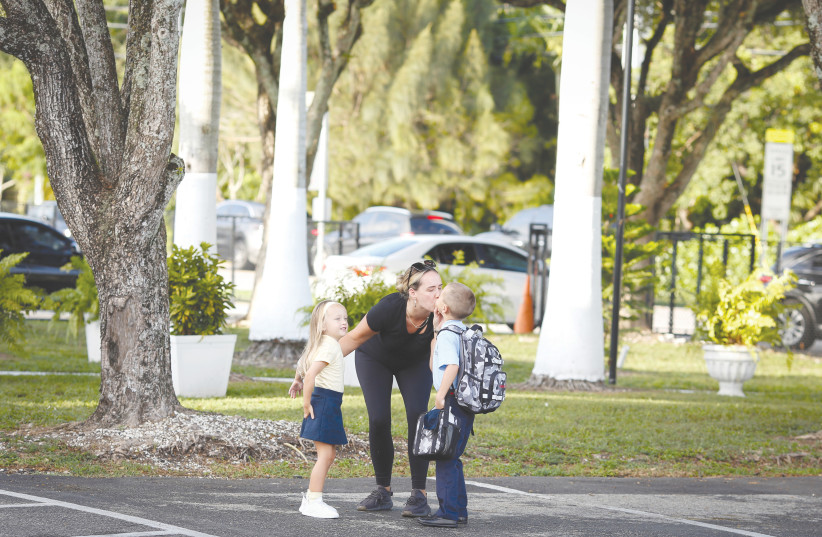When we stop and review an incident in a nursery school and process what happened with a child, the perspective time affords us produces a different point of view. We can be much more mutually attentive.
When we're in the "eye of the storm" we react without contemplation. Sometimes, we tend to school our kids in real-time. We get angry and harshly ask, "Why did you do that?" and the like.
So what are we doing? How can you manage situations in real-time?
Be "offline" when you want to discuss a problem. This helps create open talk about emotions as part of the ongoing discourse between us and our kids.
Imagine packing a bag for a trip to the tropics where the weather quickly goes from rain and humidity to clear air and sunny. You pack a hat, sunscreen, mosquito repellent, painkiller, Band-Aids, an umbrella and a windbreaker. Then, no matter what, you'll be ready.
This is how to prepare kids; talk to them about feelings at a time detached from the particular event. It doesn't have to be following something that happened to them, it can even be your experiences at work.

When you talk and share with your kids they'll see how you deal with different situations – what goes through you, what you think, feel, and how you react. They'll learn how you make space between the event and your reaction to it. They'll see you talk with yourself to find another way to interpret the situation.
They'll take part in the conversation, express opinions, and offer a different angle. This way, you show them how to think, process and then react. This normalizes situations that create challenges for us and together you create fertile ground for finding solutions.
All these are parts of the toolbox you pack in the same "bag", the same social skills. Then, in real-time, all you have to do is "pull out of the bag" what was prepared, for example, while talking before bed.
But what do we do in real-time to manage, if not resolve, a situation?
In real-time, kids don't pay attention to what we say. They're in an emotional state where they can't explain or give logical explanations for what they did versus what they should have done. It isn't helpful to stubbornly demand explanations because we think another mom, for instance, may be waiting for an "appropriate" response from us.
We need to take our kids aside, sit eye-to-eye with them and start the listening process. This sounds like something very long and tedious, but in fact, it's only a few minutes, the whole purpose of which is to see your kids. When we stop and "freeze" the situation, this causes reflection and staying fully present.
Without judging, without educating, without criticizing, just be with your child for a moment and work through what they're going through, the difficulty and the pain, and be with them, even if it's not pleasant. Our children all want, first and foremost, to be seen, validated and understood.
A conversation in real-time, in addition to inclusion and listening, also includes an assertive approach to what can be done differently in terms of our limits as parents, such as a proposal for a different course of action or behavior.
For example, we can say to our child, "instead of hitting or insulting - you turn to us," which means we're thinking of others and how they felt. We want to encourage kids to develop the ability to see the other and to understand that there are reactions to behavior from the environment and that there are feelings on the other side as well.
This is the "socialization" stage which is critical for understanding our kids' place in the world and in society and allows learning an accepted behavioral code that is carried out through mediation and translation of reality on our part so we can understand the situation.
The more emotional discourse there is while offline - the more we can create a space to legitimize our child's feelings. There will be practice and learning of a new interpretation during routine so it's likely that in real-time, challenging situations will be reduced and shortened and more space will be created between the event and the reaction.
Noga Hila Motana is a parent and family instructor, NLP facilitator, holistic child therapist and relationship counselor.
